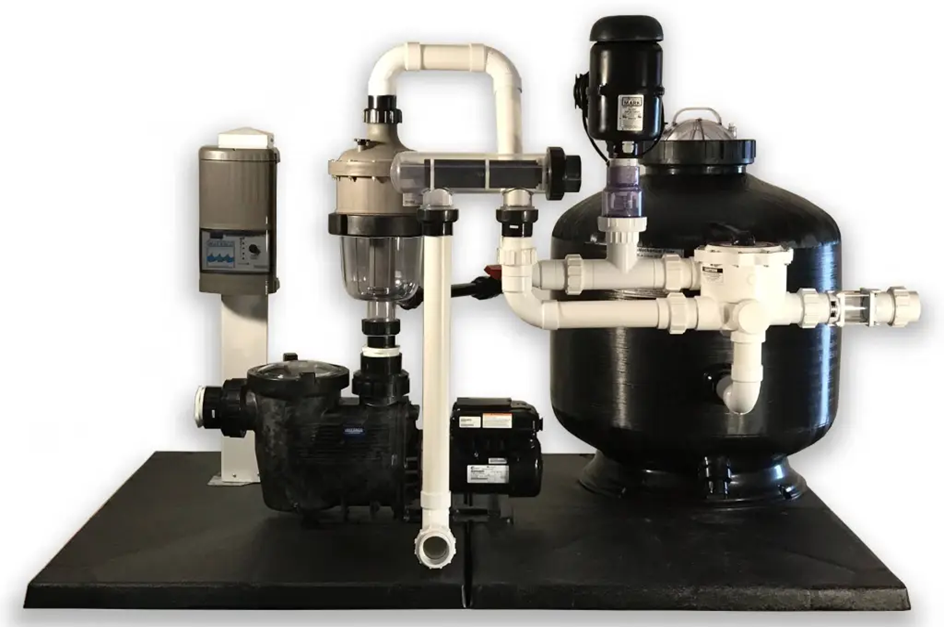Protect Your Koi: Winter Survival with Pond Heaters
- Aqua Bead
- Feb 16, 2024
- 3 min read
If you leave an oxygen exchange hole in the air, Koi fish will survive cold temperatures.
Koi Pond Heater can help reduce stress by maintaining a constant temperature throughout. The year and preventing rapid changes in water parameters which could affect their body chemistry.

Maintaining Water Temperature
In the winter, many pond owners use heaters to keep their ponds from freezing. This protects koi and its health. Koi fish have a cold blooded system, which means their body temperature is dependent on the environment. When your water freezes, it can shock and stress your Koi. In shallow ponds though it may not be enough to keep Koi living through winter.
You can monitor the temperature of your pond with a pond heater. It will warm up when it gets too cold, and cool down when it gets too hot.
Pond heaters also help to increase the oxygen level in your pond. This is important, especially during winter when evaporation increases. For best results, turn off any fountains or falls in your pond to minimize heat loss.
Maintaining Minimum Water Temperature
Koi can survive in temperatures ranging from mildly warm up to very cold. Pond heaters are a great way to keep these aquatic creatures in a comfortable temperature range. Extreme temperature changes can put them under stress and make them more susceptible to diseases.
The use of a heater in winter is a great way to keep koi healthy. Water temperatures of less than four degrees can be too low for koi to tolerate. Some koi may survive these extreme temperatures but many others will die.
A heater can help koi fish enter spring in better health. It does this by maintaining the water temperature above its preset temperature, and turning off when it reaches maximum temperature. By keeping the temperature higher and increasing oxygen, a heater can also help prevent toxic compounds from forming.
Use the heater as an emergency tool
In colder climates, Koi fish can survive without heaters. However, if your concern is for their wellbeing you may want to use one in order to keep the water temperature above 18-21 degrees. This helps to keep stress at bay.

The oxygen solubility of water decreases as the temperature drops. To remedy this, a pond heating system can be used to gently heat the water over a period of two days. This will increase oxygen availability for koi and allow them to breathe normally after thawing and reduce harmful gas accumulation.
A Koi Pond Heaters is a great tool to have in case your koi, born during the winter months, becomes sick. It will stimulate their immune system which can make them more resistant and help with treatment.
Use the heater as a maintenance tool
In climate zones that experience long periods of subfreezing temperature, koi pond heaters can be used to protect the fish from becoming sick or dying. These heaters also allow for
the gradual warming of a pond during spring, when temperatures begin to rise.
The best conditions for koi fish are consistent temperatures in their environment. However, they can survive without one by relying on fat reserves. Warmth also helps to reduce pollution in ponds, as it disperses toxic gases released by dead fish and plants into the air.
Some Koi Keepers use heaters to maintain their ponds throughout the year. They can maintain their pond above this minimum temperature by setting the heater in fall. In winter and spring, when water temperatures naturally begin to rise they turn off their heater.
Use the heater as a springtime tool
Koi fish can survive even in extremely cold temperatures. Many backyard pond owners don't bother with heaters because these fish have a cold blooded nature and are able to adapt. Koi fish can survive the winter as long as the hole in the ice remains open with deicers.

The Koi Pond Heaters are useful in areas where temperatures can dip below freezing temperatures for long periods. They maintain minimum water temperatures higher than those temperatures at which beneficial bacteria, that break down ammonia or nitrites, multiply more slowly.
They can survive extremely cold temperatures but don't enjoy them. They go into hibernation and their metabolism drops to zero when winter arrives. A heater can help them once spring returns, so they can start feeding again.




Comments